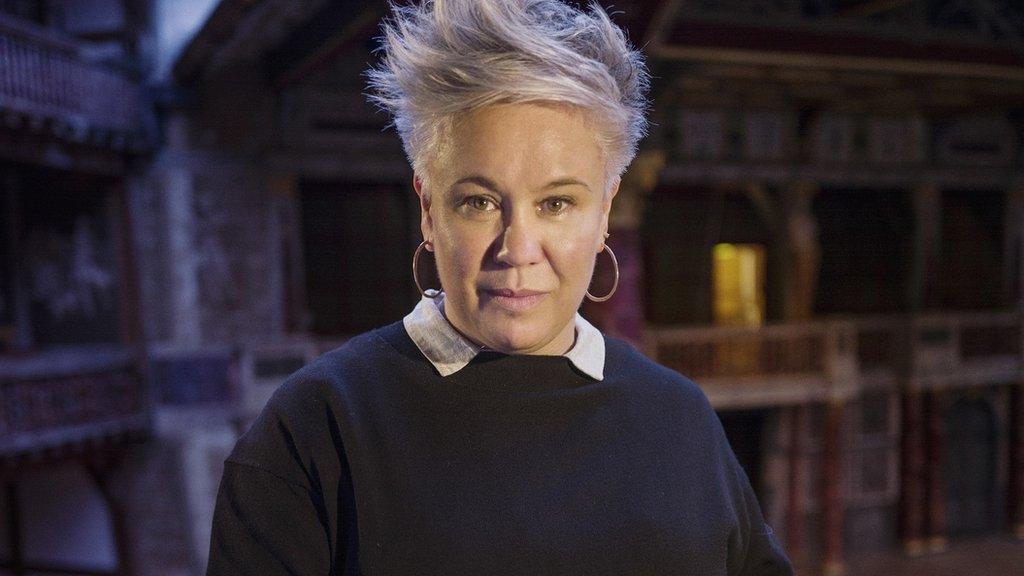Shakespeare's Globe theatre calls for urgent funds to avoid insolvency
- Published
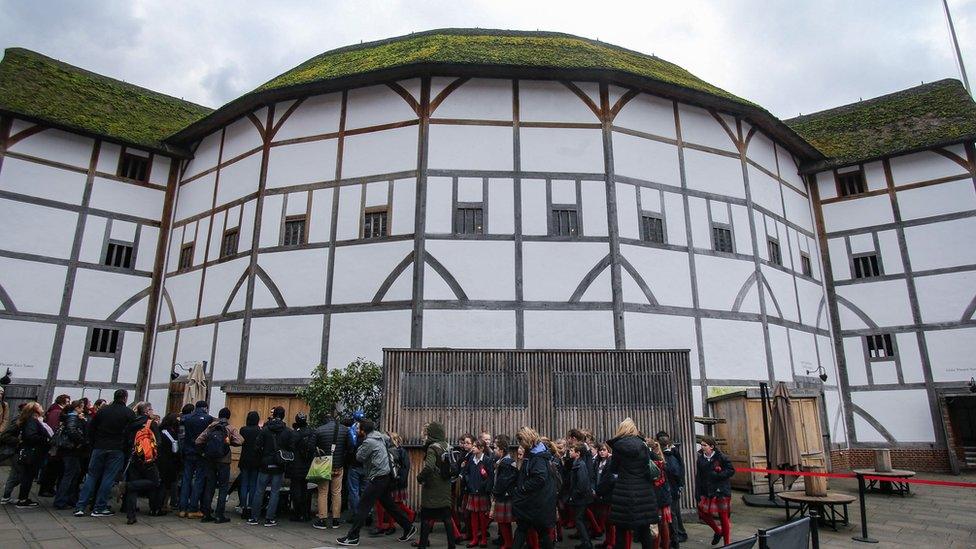
The Globe Theatre says it "contributes so much to the UK's cultural life"
Shakespeare's Globe Theatre has called for urgent funding to avoid going out of business due to the "devastating" impact of the coronavirus pandemic.
The London venue has been shut since 20 March and has warned MPs it is "critically vulnerable and at risk of closure in the wake of Covid-19".
It said it would need at least £5m to get back up and running.
It was ineligible for Arts Council England's relief and said it had been "left without any emergency support".
In evidence to the Department for Digital, Culture, Media and Sport select committee, the theatre said: "Without emergency funding and the continuation of the coronavirus job retention scheme, we will spend down our reserves and become insolvent.
"This has been financially devastating and could even be terminal."
Conservative MP Julian Knight, who chairs the committee, said in a letter to Culture Secretary Oliver Dowden that it would be a "tragedy" if the theatre was to close.
"Shakespeare's Globe is a world-renowned institution and not only part of our national identity, but a leading example of the major contribution the arts make to our economy," he wrote.
"For this national treasure to succumb to Covid-19 would be a tragedy."
The Globe does not get annual funding from Arts Council England (ACE), meaning it can't access ACE's main £90m emergency relief fund.
It said it was also turned down for a slice of a £50m pot for organisations outside the ACE annual funding regime.
Instead, the Globe raises 95% of its revenue through ticket sales, guided tours, education workshops, retail and catering - which all depend upon the venue being open to the public.

Dame Judi Dench is among the renown actors who have performed at the theatre
The theatre has now warned it faces the "biggest threat to its future since opening in 1997".
Shakespeare's Globe, a replica of an Elizabethan playhouse, has played host to actors including Sir Ian McKellen, Christopher Plummer, Dame Judi Dench, Jude Law, Ralph Fiennes and David Tennant.
"We are a model for the non-subsidised arts sector that is well-run, well-managed and financially resilient, but in the face of a crisis such as this one, there is no mechanism to help us," it said.
'Public benefit'
"In a crisis such as this one, ACE has been unable to support an organisation of our size and scale.
"As an organisation that contributes so much to the UK's cultural life, that delivers public benefit, and that stewards one of the most important, recognised and well-loved buildings in the country, we would hope that we have earned the right to be supported in return through this crisis."
A spokesperson from ACE said it had received more than 13,500 applications to its emergency funds, "and unfortunately have not been able to help everyone who applied".
They added: "We are working closely with partners, including government, to look at what measures are needed to support cultural organisations over the coming months."
The Globe made one of a number of submissions to the select committee from individuals and organisations across the UK about the threat posed to the cultural landscape and workforce.
'Unprecedented support'
The Theatres Trust anticipates the closure of a significant proportion of theatres and a lasting impact on the UK's position as a world leader in the sector.
Nuffield Southampton Theatres, which employs 80 staff, was formed in 1964 and has already gone into administration.
A government spokesperson said: "We are providing unprecedented support for the cultural sector, including the job retention scheme, a years' business rates holiday, and the Arts Council's £160m emergency response package.
"We're now working closely with the industry to plan for the future and, as soon as it is safe to do so we will be encouraging everyone to get out and experience the UK's fantastic theatrical and cultural offerings again."

Follow us on Facebook, external or on Twitter @BBCNewsEnts, external. If you have a story suggestion email entertainment.news@bbc.co.uk, external.
- Published14 May 2020
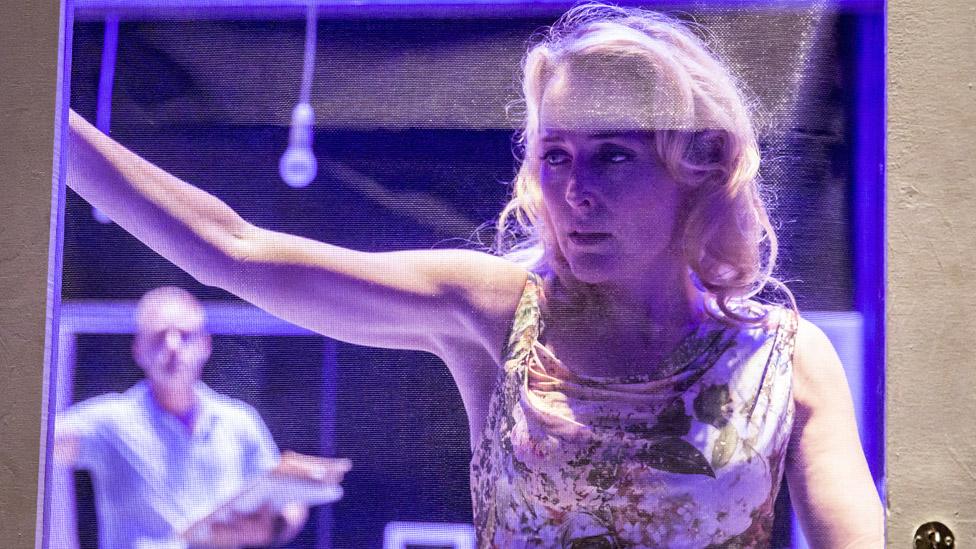
- Published6 May 2020
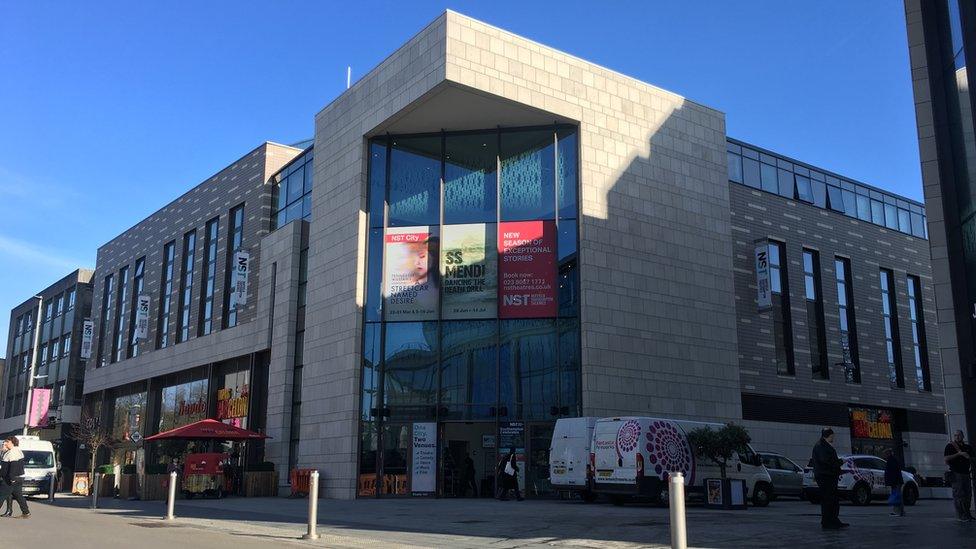
- Published4 May 2020
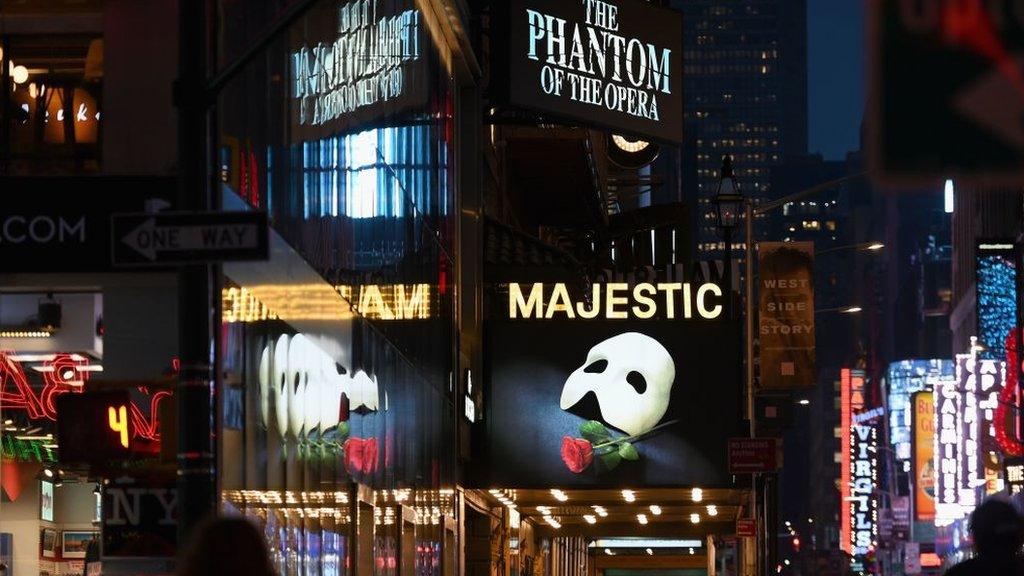
- Published13 April 2020
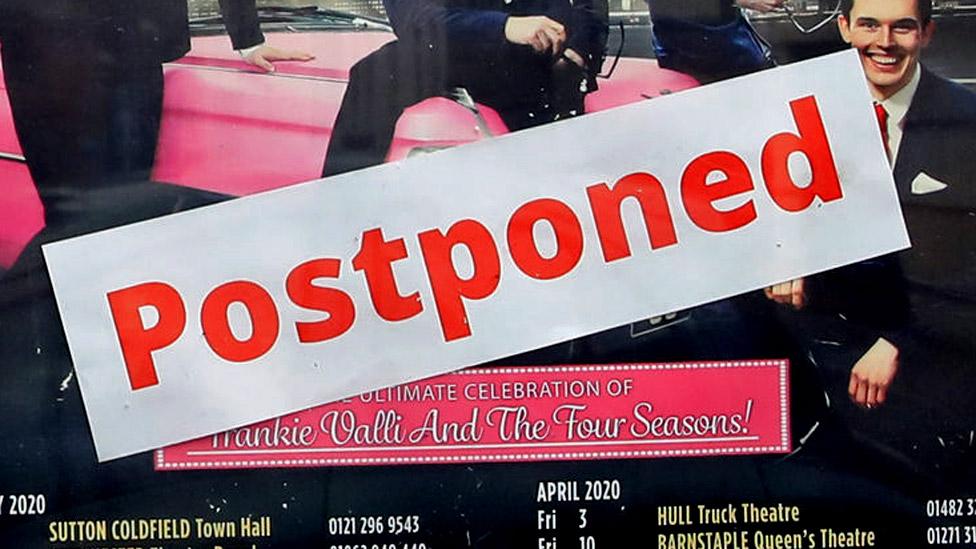
- Published24 March 2020
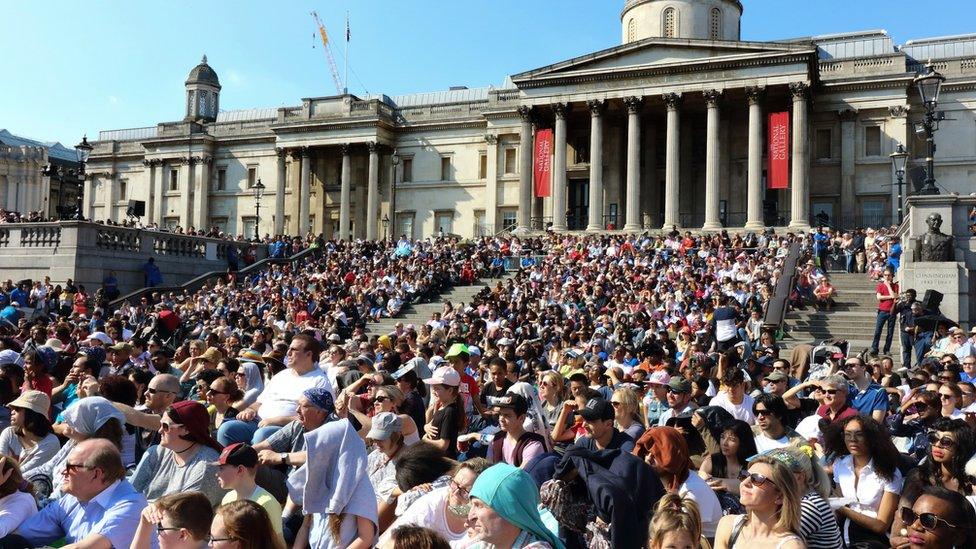
- Published19 April 2017
